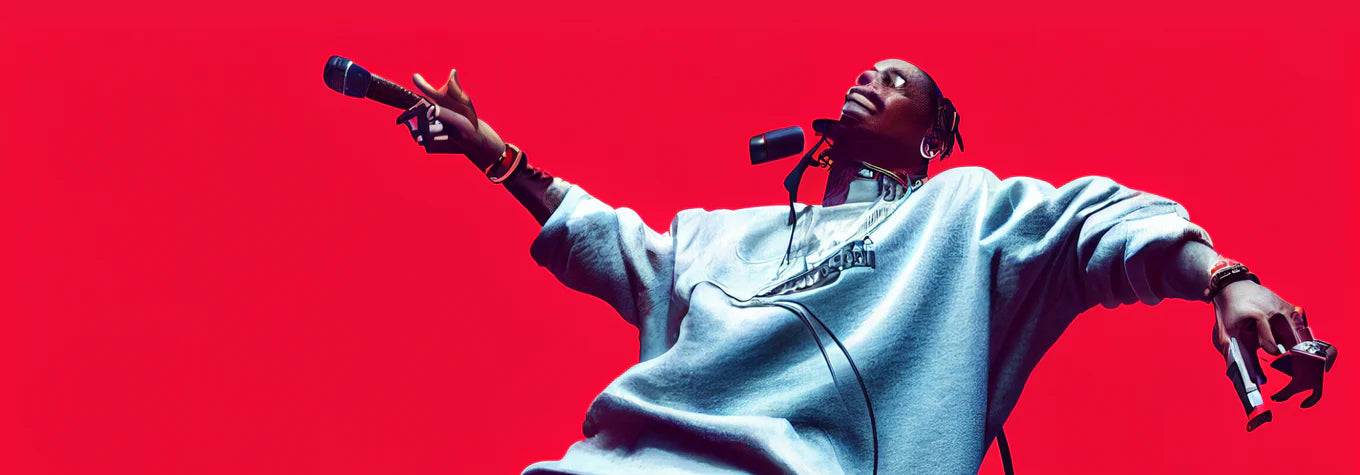
How to Write a Song That Worth Listening
In that it permeates our bodies and vibrates our skulls, music is accurate. This makes it far more intimate than visual art; after all, we respond to sound in the womb much earlier than we do to sight. Our limbic system stores memories of music alongside all of our most cherished and traumatic experiences. It lives inside of us.
Tricky Mind Games While Listening Music
Listening to a recorded song is comparable to having a bizarre dream in this subconscious reality. In both modes, the brain waves balance out, making you delicate and emotionally exposed, like a vast open space. We have primal reactions to both deep within our "good" and "bad" sorting mechanisms.
Everyone has the freedom to listen to any type of music they choose. Life is too short to waste time on such feelings and poor music, though. There are a ton of wonderful melodies out there that we should find and include into our lives. But because we have access to so much information today, it might often be impossible to escape bad music, and we might even hear it somewhere. And as a result, it persists in our minds for a considerable amount of time.
Songwriting Lyrics in Overall Music Art Production
On the other hand, music is not present when we are here. We choose to agree to it. Even when it doesn't feel like it, music is a consumer choice—possibly particularly so—and it's best suited to implication-free interaction. You are hearing imprisoned air that has been encoded and mentally reassembled. At home, listening to it is incredibly private. How could hearing this song at home, where it feels so personal, have any repercussions for anyone else, anywhere?
Most of us are able to avoid viewing our music as a consumer good, at least most of the time. The nature of online commerce, which has shown to be incredibly effective at sanding down friction points until your purchasing decisions have all the forethought of a sneeze, is partly to blame for this.
It is startlingly easy to assume that this contact—carbon impressions, squeezed distribution centers, rare syndication, pick your late-entrepreneur poison—won't ever exist because Spotify, Apple, and Amazon go to great lengths to make use easier.
However, the relationship between music and business is the most complex. A book's value may have been destroyed by Amazon, but digital books haven't replaced physical copies. The music industry, in the interim, never fully convinced listeners that stealing electronic music was harmful. They abandoned the discrete unit offer and redesigned themselves around streaming, a strategy that resembled and felt just like what the major clients were doing at the time. They ultimately did away with proprietorship. We are currently renting our music, and when we are done, we return it to the cloud.
Although listening to music has always been private, in the past you might have really had to go outdoors to acquire it. Twenty years ago, you would have taken a chance with some heated, focused humiliation if you needed to buy music produced by a known victimizer from a store. Streaming, on the other hand, removes shame from the situation with its combination of radio dial and kitchen spigot.
When you call up a melody title, it starts to play just for you. The sharing features on Spotify are a mood killer, and you are free to move about society without fear of criticism. The gap between listening to an artist on streaming services and directly purchasing their music so feels very wide. It draws a distinction between like a political rival's Facebook post and banging on someone's door to get information for them.

Bad Artists Creating Low-Quality Music
However, passively tolerating victimizers' songs about themselves when their victims have no voice at all—and that's just the beginning, when their losses typically disappear into societal cracks, frequently dogged by death threats from the craftsman's enormous fanbase—may also be an empowering, or at the very least, enabling, harmful behavior.
With a subtle increase in our ability to focus, we vote for craftspeople even when their recommendations are practically impossible to implement. Making decisions on where to draw or redraw our lines is consistently messy, insufficient, and retconned. Up until the time where it suddenly seems to be entirely obvious and verified, it is foggy.
Consider Spotify, which is doing real work to value these resources by gathering and modifying social products. Recently, they made an attempt to somewhat elude that commercial district by removing music like XXXTentacion and R. Kelly from playlists.
The widespread support they received is a good example of how complicated and disorganized final action can appear over time. XXXTentacion's marketing manager was frequently asked if and when the website feature would take similar action against Dr. Dre, Michael Jackson, David Bowie, the Red Hot Chili Peppers, and other people who had previously been accused of bad behavior.
Music Consumption Against of Ethic
The widespread support they received is a good example of how awkward and messy definitive activity can appear practically speaking. XXXTentacion's marketing manager frequently questioned whether and when the real-time feature would take comparable action against Dr. Dre, Michael Jackson, David Bowie, the Red Hot Chili Peppers, and other individuals who had previously been accused of wrongdoing.
Finding an ethical way to listen to music is difficult. Last but not least, morality and aesthetics cannot converse. Both can be ruined, just as acid causes milk to curdle. On the other side, ethics don't fit well in music. It leaks, loses its distinct meaning, and anyone can use it to represent anything.
Good music can easily be corrupted to serve evil, and even songs that seem to ooze with animosity can find a place in the most improbable redemptive tales. When heard out of context, a sound can be compassionate, serene, gorgeous, and calming even if the person who made it lacked any of these traits.
What Can Impact Users Attitude To Music Art
There are few ways to "regulate" the world of art [music art regulation] or the conduct of those who create it as a result of this ambiguity; the changes that might actually have an effect on their conduct are wholly unrelated to aesthetics: Support for those suffering from mental illness and those who have experienced domestic abuse should be easily accessible; improving the criminal justice system would be ideal. It's not hard to imagine how changes like this will affect the world of the artists that capture our attention and invade our dreams in a few years. However, since these are legal matters, they vanish as we are surrounded by music.
The only certainty is that a similar occurrence will take place once more. We will once more become aware of the fact that we have a close relationship with a piece of music composed by someone whose actions or words we cannot stand after two years, two weeks, or even two hours. When that occurs, we'll go through the same fear of implication and confusion again.
★ PLAN THE BEST PROMO FOR YOUR NEWBORN ★
If it makes us feel better, we can take arbitrary measures such as not listening to their music or publicly condemning their actions in front of our friends and family. The music, on the other hand, will not stop whispering to us. We'll preserve these nightmares. Perhaps we should learn to be aware of their presence and how they have influenced and altered us.
Even when we feel utterly alone, wrapped in headphones, in a cavern of our design, proximity to these awful dreams, and our refusal to rid ourselves of them completely, may serve to remind us of the tangled ways we are connected.



